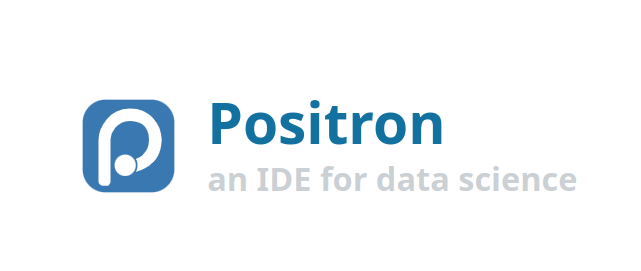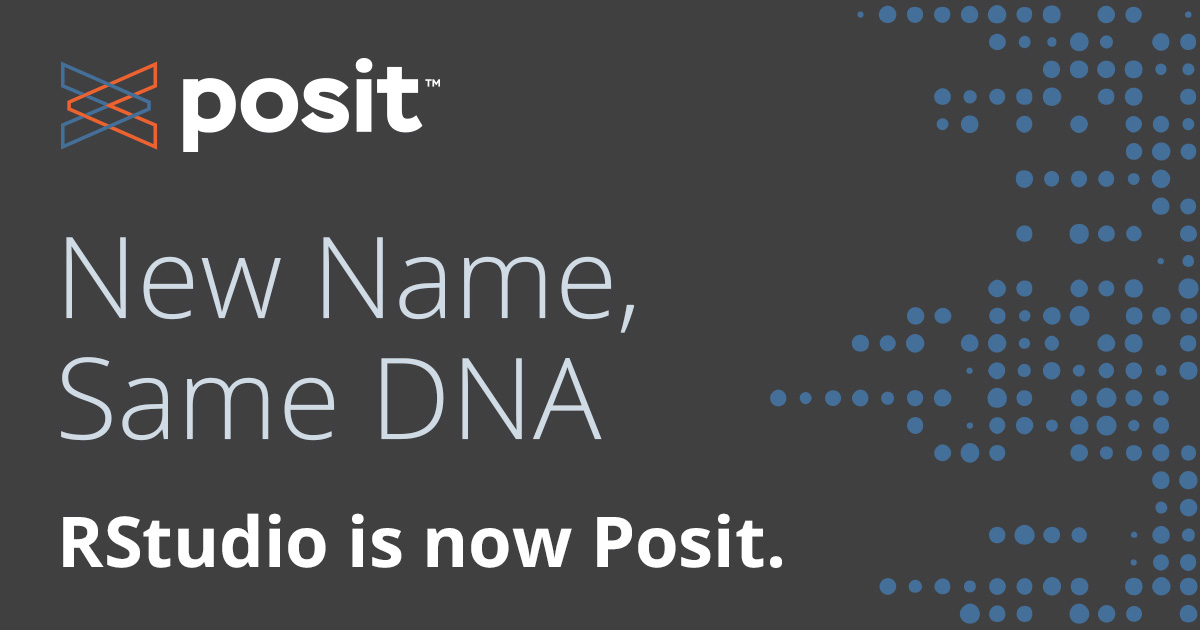Getting Started with uv
I finally decided to try `uv` for an upcoming project, my first proper Python package development

This year, something big happened in the world of data science: Posit, formerly known as RStudio, introduced Positron. While it might seem like just another product release, it’s actually part of a much larger story about how companies evolve to scale and stay relevant in a fast-moving industry. For Posit, this rebranding marks a significant shift in strategy, and it’s worth looking at why they made this move and what it means for the future of data science.
Before Posit became the new brand, it was RStudio, one of the key drivers of R’s popularity in the data science and analytics community, especially within academic and statistical circles. RStudio helped turn R into a go-to language for statisticians and academics by creating intuitive tools that made R more accessible. The Tidyverse ecosystem, with packages like dplyr, ggplot2, and the piping operator %>%, revolutionized data manipulation and visualization in R, solidifying RStudio’s place as a leader in the data science space.
At its peak, RStudio was synonymous with the R programming language. Its annual RStudio::conf conference became the largest R-focused event globally, bringing together academics, data scientists, and industry professionals. I had the privilege of attending some of these conferences through a sponsorship, and it was clear that RStudio was at the heart of R’s flourishing community.

But like any growing company, there comes a point when you have to ask, “What’s next?” For RStudio, that moment came in 2022 when they rebranded as Posit, PBC. The change signaled a new direction, which at first took many by surprise. However, for me, it felt inevitable. R, while powerful, is a specialized language. It’s great for statistical computing, but it’s not a general-purpose programming language like Python. And in the broader data science landscape, Python’s dominance is undeniable.
To grow and remain competitive, Posit had to evolve beyond R. The rebranding wasn’t just about a name change, it was about expanding their reach and offering tools that cater to a wider audience. Supporting Python was a logical next step. After all, many data science teams use both R and Python, and it makes sense to bridge the gap between the two. Posit has begun this process with tools like ggplot for Python, and they’re even exploring ways to bring the popular Shiny framework to Python, allowing users to work across languages with similar syntax.
As Posit strives to establish itself in this broader ecosystem, it’s interesting to think about what else they could support. Julia, for example, is a language gaining momentum for its speed and efficiency, especially in scientific computing. Posit could play a role there too.
Now, let’s talk about the big reveal, Positron. My first thought? It’s slick. In many ways, Positron is like a more refined version of VS Code but with better support for data science workflows, particularly in R and Python. One of the long-standing frustrations with VS Code was that the extensions for R weren’t mature, and the IntelliSense (code completion) left much to be desired. Positron changes that. It’s smooth, integrates well with R, and feels polished.
For Python users like myself, switching between projects in Positron is seamless. While I’m still a fan of PyCharm, Positron is quickly becoming my second choice, especially for R-related work. It offers a more integrated experience than RStudio ever did, which is impressive given how entrenched RStudio was in my workflow.
Is this the end of RStudio? I don’t think so. While Posit claims to still support R, it’s clear that their focus is shifting. But, there are other big players in the R community and I think this might be an opportunity for them to step up and ensure Rstudio continues to stay relevant. However, before that happens, I think in the coming months, we might see RStudio crash more often, a persistent problem that hasn’t been fully resolved in recent years. But instead of trying to perfect RStudio, Posit is focusing on building something new and better with Positron. It feels like Positron is more than just an alternative, it’s the future of R development.
If RStudio was to R what PyCharm is to Python, it raises the question: why not continue to improve it? The reality is that Positron seems to address many of the pain points that have plagued RStudio for years. From smoother integrations to a cleaner interface, Positron is likely where Posit will pour most of their future efforts.
So, what can we expect from Posit in the future? For one, we might see greater adoption of Positron as the go-to IDE for both R and Python. The development tools we use are critical, and Posit is positioning itself as the platform for cross-language collaboration. With that in mind, they could continue expanding into areas like cloud-based analytics, machine learning integrations, and more Python-centric tools.
It’s also possible that Posit could become more active in shaping the future of open-source data science tools, bringing more consistency across languages and workflows. The emphasis on fast iteration, support for multiple languages, and ease of use suggests that Posit is aiming to become a comprehensive data science platform.
In the end, this transition from RStudio to Posit is more than just a rebrand, it’s a signal of how companies must adapt to scale and stay relevant. As we move forward, Positron feels like the first step in a broader strategy to capture more of the data science market by bridging the gap between languages and building better, more versatile tools.
While the R community may have mixed feelings about this change, the direction seems clear: Posit is positioning itself for growth in a world that increasingly values flexibility and cross-language compatibility. It’s an exciting time, and I’m looking forward to seeing how Posit continues to evolve.
For now, I’m enjoying working in Positron, it’s the most fun I’ve had with R in a long time. Let’s see what the future holds!
Join the community and get new insights delivered to your inbox.